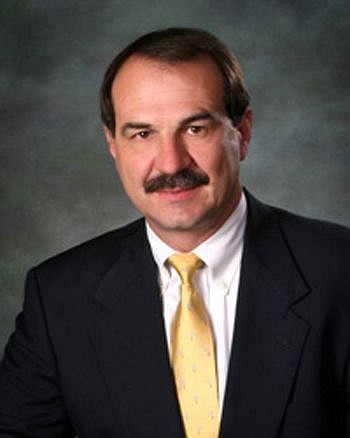
If police are called to an address an excessive number of times, the person or business requiring that service should pay more.
That’s the proposal from City Council member John Crescimbeni, who put the idea on the table Wednesday at the Special Ad Hoc Committee on Jacksonville’s Neighborhood Blight.
He compared the concept to a utility bill.
“If you use more electricity or water, your bill is higher,” Crescimbeni said. “It’s a matter of fairness.”
He said a new way to collect for excess services could be based on provisions in the municipal code that apply to when police respond to false burglar alarms.
There’s no penalty for the first six responses to false alarms in a 12-month period. Each false alarm after that results in a $25 civil penalty.
A 13th violation within a 12-month period also results in immediate revocation of the license decal issued for the alarm system.
The system must then be inspected, serviced and certified to the satisfaction of the alarm inspection officer of the Jacksonville Sheriff’s Office and a new decal issued at a fee of $25.
Crescimbeni presented a list of eight cities that levy an additional charge for “excessive” or “chronic” use of resources.
Those municipalities are as close as Daytona Beach and as far away as Anchorage, Alaska. In addition to geographically, the two municipalities also are far apart in terms of violation thresholds and penalties.
In Anchorage, “excessive police response” is defined as more than eight calls per year for a residential property or more than 100 calls per year for a commercial property.
The owner and tenant of those properties shall jointly pay $500 per excess response, enforceable by lien for non-payment.
In Daytona Beach, excess consumption is more than 15 service incidents or 10 man-hours in any week and up to 75 incidents or 50 man-hours in a year.
The charge is computed by multiplying the average hourly base rate salary of the police officers involved by 200 percent and multiplying that by the time spent in one-tenth-hour increments for each officer who responds.
An additional 20 percent assessment is added for report writing. Any cost to repair or replace equipment damaged during the excess response and any worker’s compensation expenditures incurred by Daytona Beach for injuries to personnel also are recovered.
Levying an up-charge for a defined level of multiple calls to the same location could be an additional revenue source.
“If you’re going to use the service, you have to pay for it. Plow it all back into the sheriff’s office,” he said.
@DRMaxDowntown
(904) 356-2466